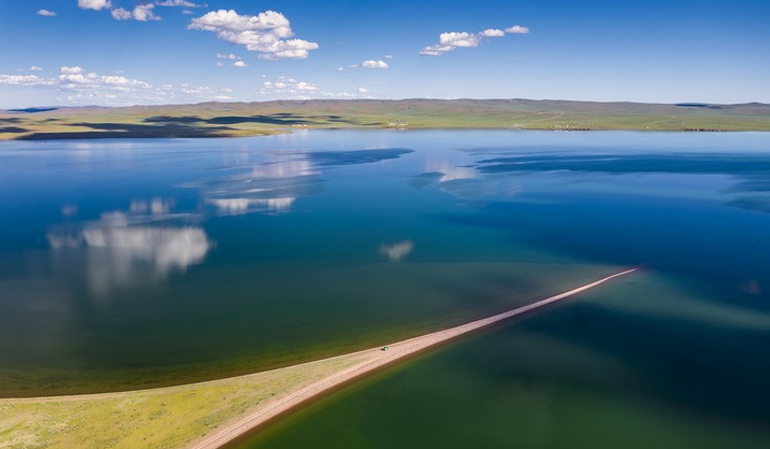Central Mongolia
Central Mongolia
Most recommended tour places, diverse attractions make central Mongolia a highlight destination, offering a mix of historical exploration, cultural immersion, natural beauty, and outdoor adventure. This variety ensures that visitors have a rich and memorable experience, fully engaging with the unique essence of Mongolia.
Area 123km2
Average temperature 10°C to 25°C (May –September )
Elevation 1,000 to 2,000 meters (3,280 to 6,560 feet)
There is The Orkhon Valley Cultural Landscape which is a UNESCO World Heritage site recognized for its outstanding historical, cultural, and archaeological significance. The valley includes Erdenezuu monastery, ancient capital Kharkhorin, Orkhon waterfall, Tuvkhun monastery, Tsenkher hot spring, Khushuu tsaidam Memorial, Khorgo terkh national park and many more interesting places await for you to come and visit there!
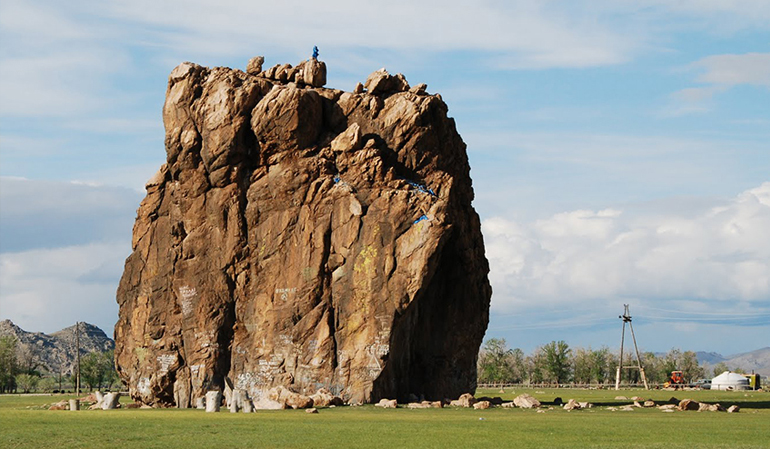
Taikhar Rock
Taikhar Rock, also known as Taikhar Chuluu, is a notable geological and cultural landmark in Mongolia. Taikhar Rock is located in the Arkhangai Province of central Mongolia, near the town of Tsetserleg. It stands on the banks of the Tamir River, making it an easily accessible site for visitors traveling through the region.
Read More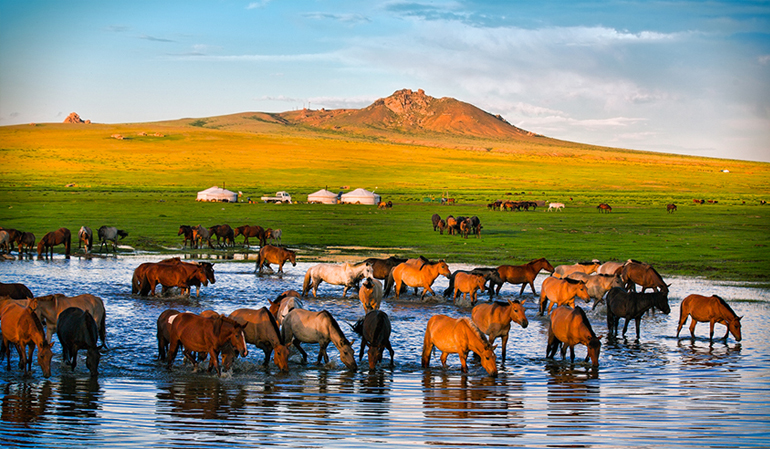
Hugnu Tarni National Park
Hugnu Tarni National Park is situated in the Töv and Bulgan provinces of central Mongolia, about 280 kilometers west of Ulaanbaatar. It covers an area of approximately 46,000 hectares.
Read More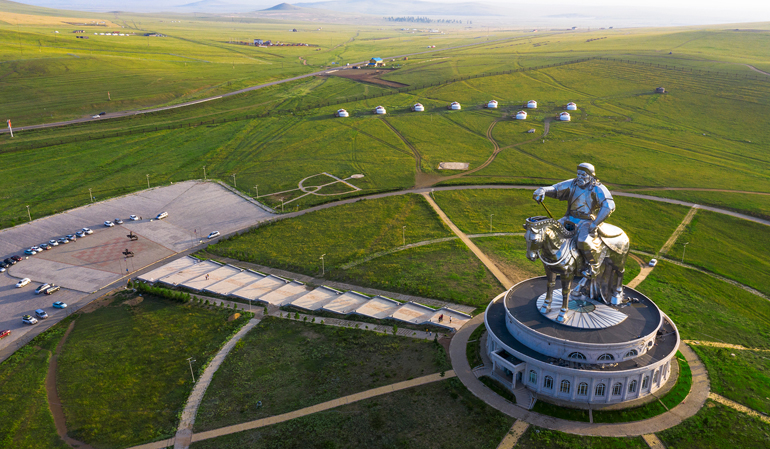
Tsonjinboldog
Tsonjinboldog is a notable site in Mongolia, primarily recognized for the towering statue of Chingis Khan that stands as a tribute to the legendary founder of the Mongol Empire.
Read More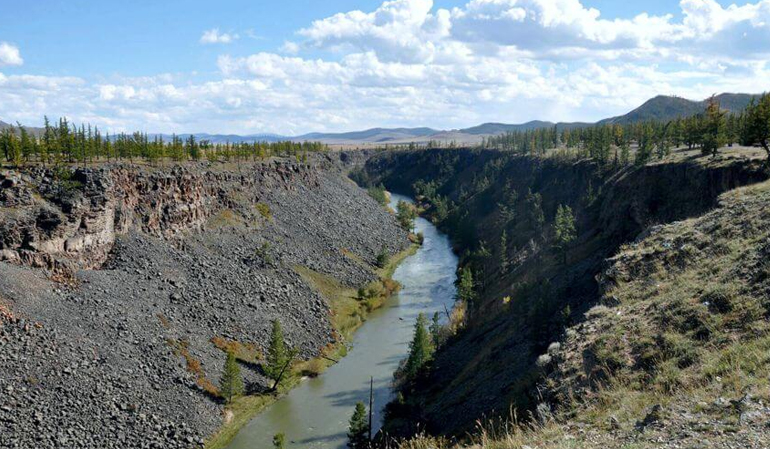
Chuluut River Valley
Chuluut River starts from Eg mountain pass, which is of the Gurvan Angarkhai Mountain in the eastern part of Khangai Mountain range. It flows for 415km joining Ider River and becomes a tributary of Selenge River, which is the biggest river of Mongolia and reaches to the Baikal Lake.
Read More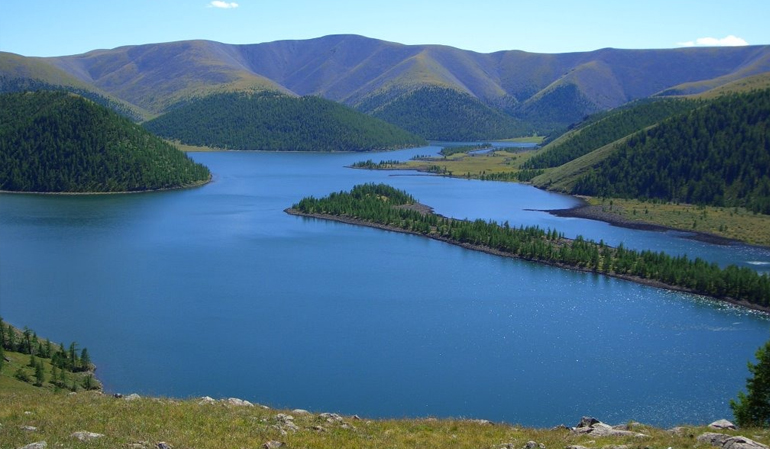
Khuisiin Naiman Nuur
Khuisiin Naiman Nuur is located in the Khangai Mountains in the Övörkhangai Province of central Mongolia. The area is part of the Orkhon Valley Cultural Landscape, a UNESCO World Heritage Site.
Read More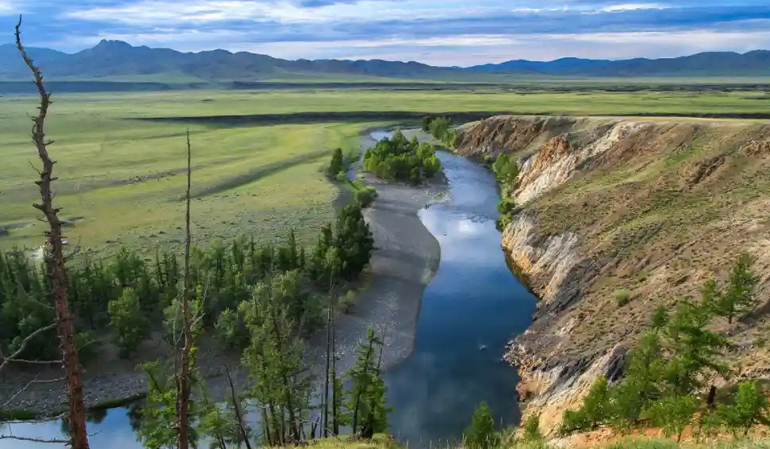
Orkhon Valley
The Orkhon Valley, located in central Mongolia, is a region of significant historical, cultural, and archaeological importance. It is recognized as a UNESCO World Heritage Site for its rich historical significance and stunning natural beauty.
Read More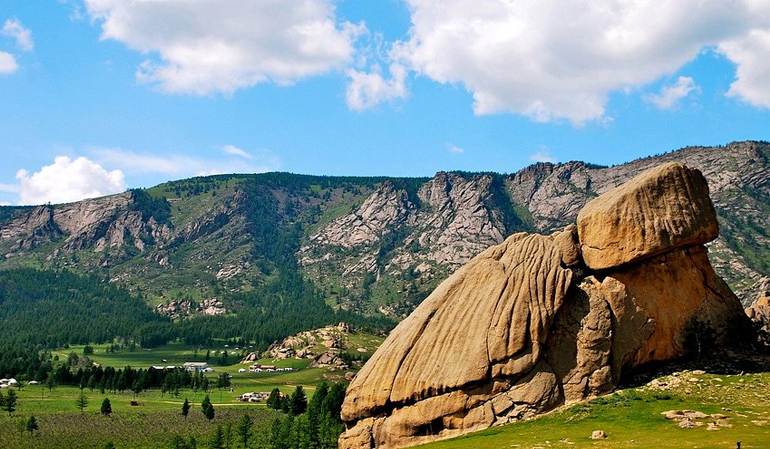
Gorkhi-Terelj National Park
Gorkhi-Terelj National Park is a stunning natural area, approximately 70 kilometers northeast of the capital city, Ulaanbaatar. This place, located near Ulaanbaatar, offers the opportunity to witness natural wonders such as unique mountains, rocks, flowers, and birds, as well as experience the nomadic lifestyle.
Read More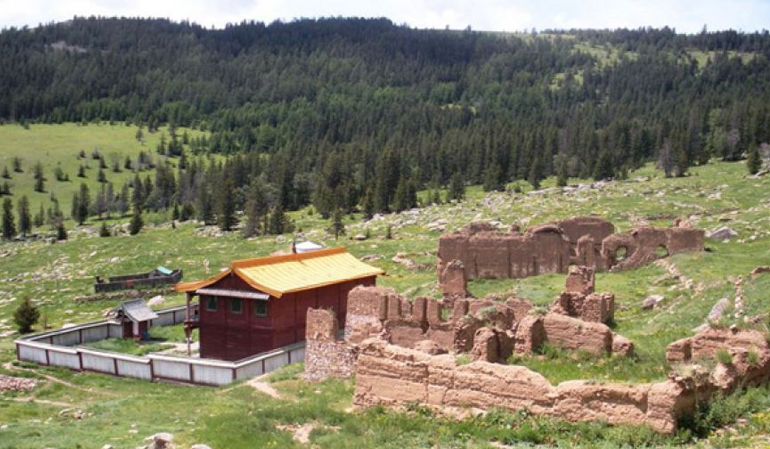
Manzushir Monastery
Manzushir Monastery is a historic Buddhist monastery located in the Bogd Khan Mountain range, approximately 47 kilometers south of Ulaanbaatar, which is a protected area and a popular destination for hiking, nature exploration, and cultural tourism. The monastery is surrounded by forests, rocky cliffs, and meadows.
Read More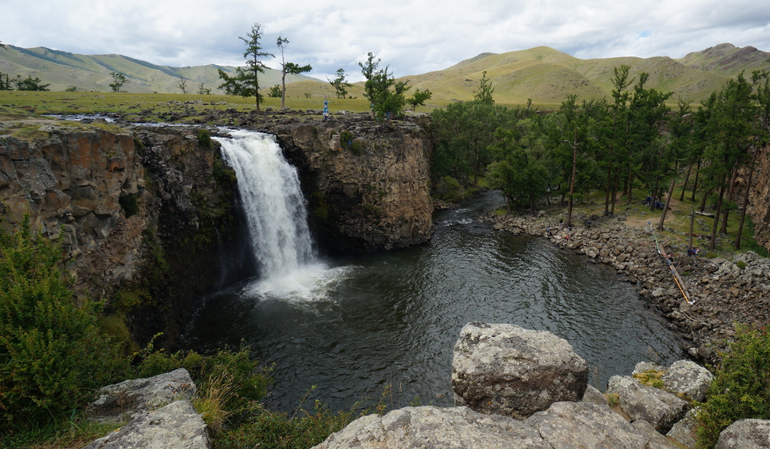
Orkhon Waterfall
The Orkhon Waterfall, also known as Ulaan Tsutgalan, is a majestic waterfall located on the Orkhon River in central Mongolia and it lies within the Orkhon Valley Cultural Landscape, which is renowned for its historical, cultural, and natural significance.
Read More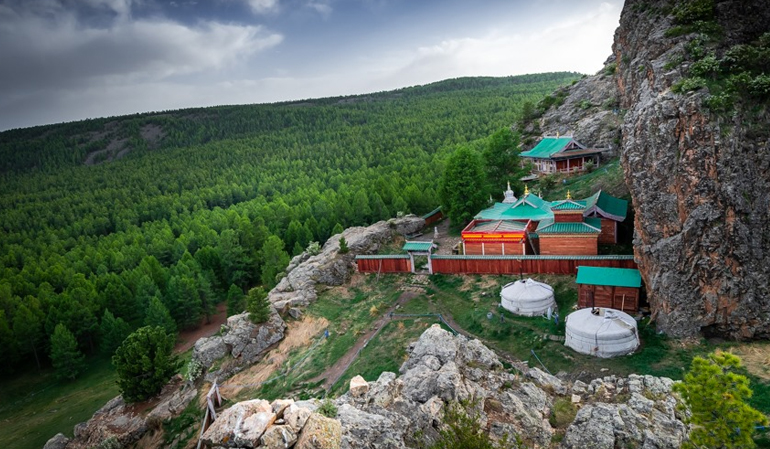
Tuvkhun Monastery
Tuvkhun Monastery is a historic Buddhist monastery located in the Khangai Mountains of central Mongolia, near the town of Kharkhorin and it is situated in a secluded and picturesque mountainous area, offering stunning views of the surrounding valleys and forests.
Read More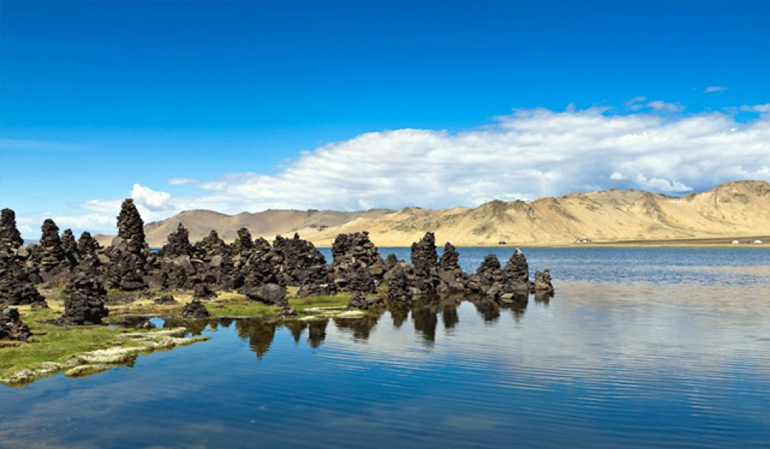
Terkhiin Tsagaan nuur (White lake)
The national park is named after Terkhiin Tsagaan Nuur, a large freshwater lake renowned for its crystal-clear waters and scenic beauty. The lake is surrounded by volcanic mountains, lush forests, and meadows. The park is home to a diverse range of flora and fauna.
Read More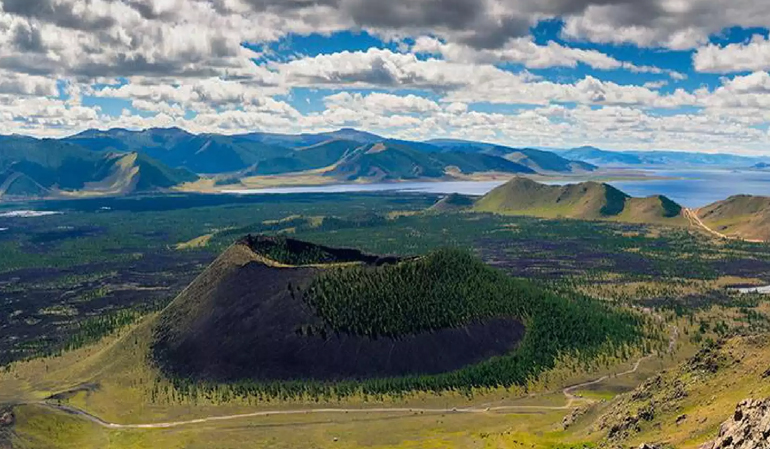
Khorgo volcano and Terkh national part
Khorgo Volcano and Terkhiin Tsagaan Nuur National Park, located in central Mongolia, on territory of Arkhangai province, are famous for their stunning natural beauty, unique geological features, and diverse ecosystems.
Read More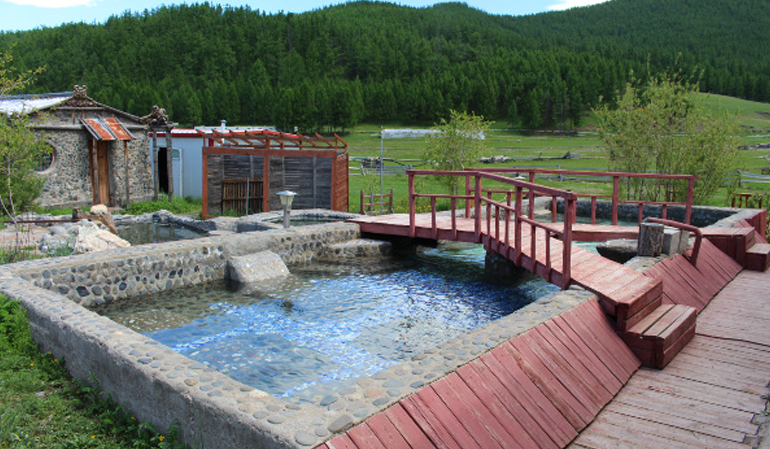
Tsenkher hot spa
This spring lies south of Tsetserleg town in Arkhangai province and comes out from far deep part of the ground and its water is not mixed with soil waters because it is hot. The spring is kept in high pressure under the ground flow rate is high, 10 liters per second.
Read More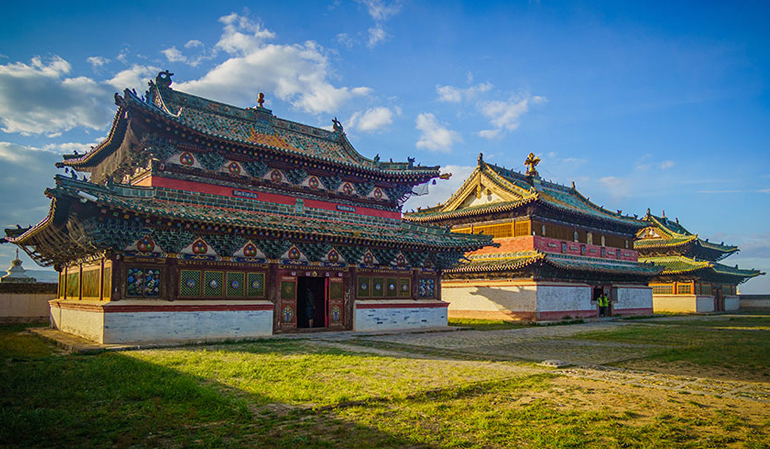
Erdenezuu Monastery
The first Buddhist monastery in Mongolia, Erdene Zuu was established in 1586 on the ruins of ancient capital Kharkhorin, probably the most ancient surviving Buddhist monastery in Mongolia.
Read More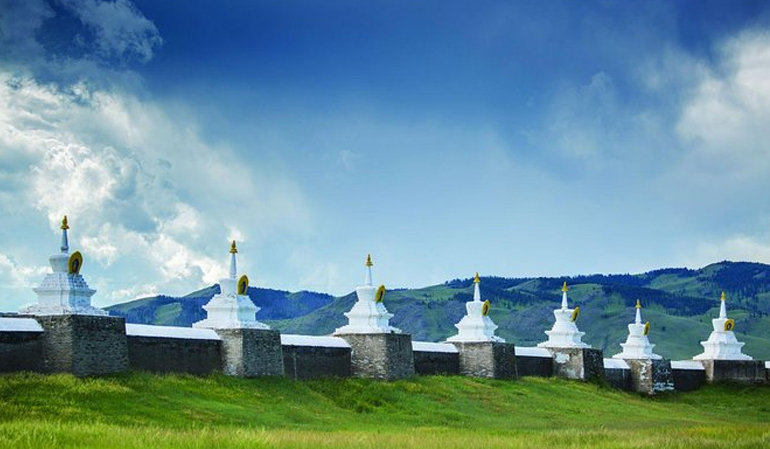
Kharkhorin
In the mid-13th century, Kharkhorin thrived as a bustling hub of activity. It was here that Chinggis khaan established a vital supply base, laying the groundwork for his ambitious plans. Under the reign direction of his son Ogedei Khaan, Kharhorin evolved into a proper capital city, drawing traders, dignitaries, and skilled artisans from far and wide, spanning Asia to Europe. As the heart of the largest contiguous empire in history, Kharkhorin played a crucial role in the political, economic, and cultural life of the Mongols.
Read More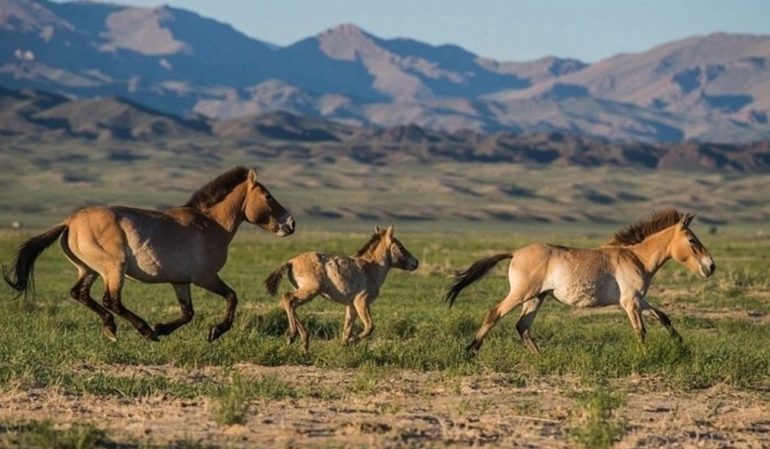
Hustai National Park
Hustai National Park is a protected area in central Mongolia renowned for its successful reintroduction of the Przewalski horse (takhi Mongolian name) and it’s diverse.
Read More

